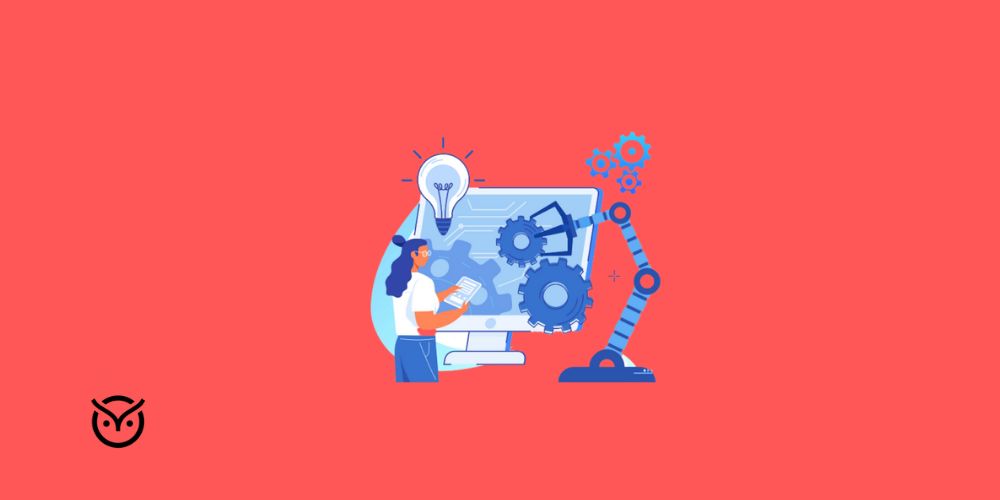
TL;DR
- AI in recruiting is no longer hype — adoption is skyrocketing.
- We read the latest AI reports so you don’t have to.
- Key themes: efficiency, fairness, compliance, and maintaining a balance.
- Recruiters in 2025 will need to master AI literacy to stay competitive.
- Risks include bias, privacy concerns, and regulatory uncertainty.
If you’ve ever felt buried under endless “must-read” research on AI and talent acquisition, you’re not alone. Every week, it feels like another think tank, consulting firm, or HR tech company drops a 100-page report.
Enter your friendly AI news reporter: we’ve done the heavy lifting, skimmed the fine print, and distilled the top AI reports recruiters should know in 2025.
Why AI in Recruiting Is Getting So Much Attention

Recruiters are under pressure: tight labor markets, rising candidate expectations, and the need to fill roles faster than ever.
⚠️ Reality Check: AI can automate sourcing and screening, but it’s not a magic bullet. Recruiters who don’t actively monitor bias risk create bigger problems than they solve.
AI promises:
- Faster screening and shortlisting
- Better candidate matching
- Predictive analytics for workforce planning
But it also raises ethical questions about fairness and bias.
The Top AI Reports Recruiters Should Know

We dug into recent publications from firms like McKinsey, Deloitte, LinkedIn, and the World Economic Forum. Here’s the executive summary:
1. McKinsey – State of AI in 2025
AI adoption in HR rose 25% year-over-year, with recruiting being the top function adopting automation.
Why it matters: McKinsey numbers are what executives quote in board meetings. If they say “AI adoption in HR rose 25%,” your CFO will ask why your team isn’t in that 25%.
Founder’s take: “This is the ammo you use when justifying budget for AI tools. If McKinsey says recruiters are leading AI adoption, we can’t afford to be the laggards.”
🔎 Context Check: Why read these reports? Because your leadership, clients, and even candidates are reading them too. Knowing the highlights makes you the most informed person in the room.
2. Deloitte – Human Capital Trends
60% of surveyed leaders see AI as critical to creating a more personalized candidate experience.
Why it matters: Deloitte frames AI as critical to personalized candidate experience, which is fast becoming the top differentiator in talent markets.
Founder’s take: “This is where AI stops being backend efficiency and becomes candidate-facing. For agencies and in-house recruiters, the candidate journey is now the battlefield.”
3. LinkedIn – Future of Recruiting Report
Recruiters using AI report 30% faster time-to-hire.
Why it matters: LinkedIn has the data that most recruiters trust. If they say AI cuts time-to-hire by 30%, that’s a benchmark you’ll be judged against.
Founder’s take: “Clients ask us, ‘Why does it take 60 days to fill a role if AI can speed it up by 30%?’ We need to close that gap or risk losing credibility.”
📊 Did you know? LinkedIn found AI can speed up hiring by 30%, but only if recruiters adopt it intentionally — otherwise, it just adds more tools without a strategy.
4. World Economic Forum – Future of Jobs
AI-driven hiring tools are expected to impact 40% of roles globally by 2030.
Why it matters: WEF doesn’t just influence HR; it shapes government policy. Their prediction that AI hiring tools will impact 40% of roles informs future regulation.
Founder’s take: “Recruitment is no longer just business ops — it’s geopolitics. If policymakers are building around AI hiring risks, we need to get ahead of compliance or risk fines.”
5. SHRM – AI and Hiring
Only 28% of companies have clear AI governance policies.
Why it matters: SHRM is the HR profession’s mouthpiece. Their finding that only 28% of companies have AI governance means most recruiters are flying blind.
Founder’s take: “This is both a red flag and an opportunity. Agencies that can say ‘we follow AI governance best practices’ will instantly stand out.”
⚠️ Reality Check: Only 28% of companies have clear AI governance policies. Translation? Most recruiters are still improvising. This is both risky and a huge opportunity for differentiation.
6. Gartner – HR Technology Outlook 2025
78% of HR leaders are investing in AI-driven recruitment tools, with bias auditing and explainability ranked as top priorities.
Why it matters: Gartner defines which HR tech vendors rise and fall. Their focus on bias auditing and explainability will drive vendor roadmaps and buying criteria.
Founder’s take: “When Gartner says explainability matters, every HR buyer puts it in their RFP. If our AI recruiting tools can’t explain decisions, we’ll lose deals.”
7. OECD – AI and Skills Report
The OECD highlights that AI recruiting systems accelerate the shift toward skills-based hiring, predicting a 40% drop in degree-only job postings by 2030.
Why it matters: OECD puts numbers behind the skills-first shift: degree-only job postings could drop 40%. Recruiters who stick to outdated filters will miss talent.
Founder’s take: “If the world is moving to skills-first hiring, our sourcing and job ads must reflect it. This is existential: stay degree-focused and we’ll look obsolete.”
8. IBM – Global AI Adoption Index 2025
42% of enterprises are now deploying AI in HR, with recruitment flagged as the fastest-growing function for AI adoption.
Why it matters: IBM tracks enterprise adoption. If 42% of HR teams are already using AI, recruiters who aren’t are behind the curve.
Founder’s take: “This report proves AI in recruiting is mainstream, not experimental. Waiting another year isn’t cautious — it’s falling behind.”
9. PwC – AI and the Future of Work
PwC reports that 74% of CEOs believe AI will require massive recruiter upskilling to balance automation with human decision-making.
Why it matters: PwC highlights upskilling as the CEO’s agenda item. That means recruiter capability, not just tech adoption, is under scrutiny.
Founder’s take: “Upskilling is non-negotiable. If recruiters don’t learn AI literacy, tools will replace tasks — and then the recruiter. We need to invest in people, not just software.”
💡 Pro Tip: Don’t just read these reports — borrow their language. Quoting PwC or McKinsey in client pitches positions you as a strategist, not just a resume shuffler.
10. Recruiting Brainfood – AI in Talent Acquisition Pulse Survey
Independent research shows sourcers using AI copilots process 3x more candidates per week, but report challenges in candidate trust and transparency.
Why it matters: Brainfood reflects the recruiter community. Their finding that sourcers process 3x more candidates with AI copilots is practical proof for day-to-day ops.
Founder’s take: “This is the ground truth. It tells me AI is already multiplying recruiter output. The challenge now is transparency with candidates so trust doesn’t erode.”
✅ Try This: Pick one stat from this list and bring it up in your next team huddle or client meeting. Watch how quickly it shifts the conversation toward AI readiness.
Common Themes Across the Reports

After sifting through thousands of pages, four patterns stood out:
- Efficiency is King – Automation reduces recruiter workloads by up to 50%.
- Bias Remains a Concern – Without oversight, AI risks amplifying hiring discrimination.
- Skills > Degrees – Reports agree that AI recruiting tools are shifting focus toward skills-based hiring.
- Compliance Is Catching Up – New regulations like the EU AI Act will soon impact global hiring practices.
Is Your Recruiting AI Compliant?
Quick 6-question check. Get your score and instant tips.
Do candidates get a clear notice that AI is used in screening and how their data is processed?
Do you run regular bias and disparate impact tests on your AI models and keep records?
Can you explain AI-assisted decisions to candidates and hiring managers in plain language?
Is there guaranteed human oversight for key hiring decisions with a clear appeal path?
Do your vendors sign DPAs and share model documentation, data sources, and audit results?
Do you have a documented data retention and deletion schedule for candidate data?
No data leaves this page. Your answers are not stored.
Risk level: —
Tip: aim for 6/6 before using AI at scale in hiring.
What This Means for Recruiters in 2025

So what should you do with all this?
- Upskill fast: Learn how AI recruiting tools actually work (prompting, algorithms, data).
- Stay human: Use AI for efficiency but keep people-first decision-making.
- Audit your tools: Regularly check for bias and compliance issues.
- Advocate for policies: Be the voice ensuring AI adoption is fair and ethical.
Recruiters who lean in will future-proof their careers. Those who ignore AI risk being left behind.
How Ready Are You for AI in Recruiting?
Move the sliders from 0 to 5 for each area. Get your readiness score, level, and next steps.
Do you have an AI roadmap, budget, and leadership support for recruiting?
Weight 20%Clean ATS/CRM data, clear consent, stable integrations, and labeled outcomes.
Weight 20%AI features in place for sourcing, screening, scheduling with audit logs.
Weight 15%Recruiters trained in prompts, evaluation, and AI-supported decision making.
Weight 15%AI notice, bias testing, explainability, DPA with vendors, retention policy.
Weight 20%Clear use cases, playbooks, feedback loops, and success metrics.
Weight 10%Target 80%+ before scaling AI across all roles.
✅ Your Next Step: Pick one task from your recruiting workflow this week — scheduling, sourcing, or screening — and test an AI tool for it. Document the result. Congratulations, you’ve started your AI journey.
Conclusion
AI isn’t here to replace recruiters — it’s here to redefine the role. By mastering AI literacy, you’ll spend less time screening resumes and more time building relationships with top talent.
FAQs
AI tools can unintentionally amplify bias, create legal risks under emerging regulations, and compromise candidate privacy if not monitored.
Yes. Thanks to affordable SaaS tools, even SMBs are using AI for screening, scheduling, and candidate matching. Adoption is accelerating.
No. AI will automate repetitive tasks, but recruiters remain essential for human judgment, relationship building, and culture fit.




